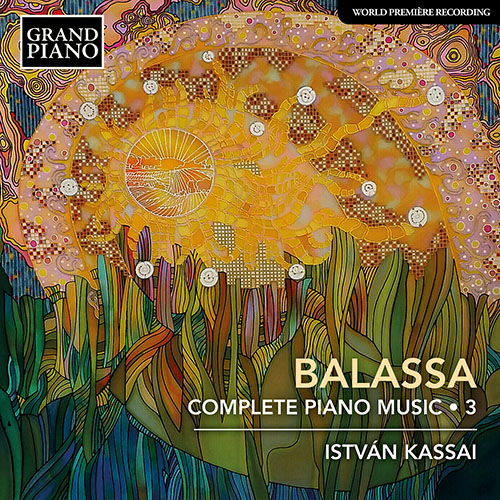
About this Release
“This third and final volume of my survey of Sandor Balassa’s complete piano works highlights the composer's sheer creativity and diversity. Apart from the piano works, the programme includes his solo piece for harp, Északi ajándék (‘A Gift from the North’), which I liked so much that it became the first piece by the composer that I performed in front of an audience. I also asked for the score of his other harp piece and his works for cimbalom. They all turned out to be very enjoyable pieces to play on the piano, their somewhat unusual textures making for a decidedly interesting soundscape. Balassa considers the Fantázia, Op. 97 to be his best piano work, hence I have left it for the very end of this album, and as a fitting conclusion to a most rewarding project.” — István Kassai
BALASSA, SÁNDOR (1935–2021)
Complete Piano Music • 3
- István Kassai, piano
Sándor Balassa has stated that his music for piano ‘has to evoke genuine emotions, recalling the abundance of a springtime meadow, giving us a feeling of richness, and inspiring a sense of adventure in us and touching our hearts’. In this third volume, which includes piano versions of pieces for harp and cimbalom, the sheer diversity of Balassa’s imagination is amply illustrated, conjuring atmosphere and poignant recollections as well as demanding exceptional virtuosity. Balassa considers the closing Fantázia, Op. 97 to be his best piano work.
This recording was made on a modern instrument: Steinway, Model D
Tracklist
|
Kicsi a bors… (Peppercorns are Small…), Op. 106 (2008) (00:12:00 )
|
|
1
No. 1. Andante * (00:01:49)
|
|
2
No. 2. Allegro assai * (00:02:22)
|
|
3
No. 3. quarter note = 56 * (00:01:42)
|
|
4
No. 4. Allegretto movimento * (00:02:09)
|
|
5
No. 5. eighth note = ca. 80 * (00:03:10)
|
|
6
No. 6. Molto allegro * (00:01:08)
|
|
Északi ajándék (A Gift from the North), Op. 139 (version for piano) (2015) (00:08:00 )
|
|
7
I. Andantino * (00:02:56)
|
|
8
II. eighth note = 116 * (00:01:17)
|
|
9
III. Lento tranquillo * (00:03:57)
|
|
12 Könnyű zongoradarab (12 Easy Piano Pieces), Op. 123 (2011) (00:25:00 )
|
|
10
No. 1. A kis pendelyes (Little Urchin) * (00:01:06)
|
|
11
No. 2. Téma változatokkal (Theme with Variations) * (00:02:00)
|
|
12
No. 3. Hubble ajándéka (Hubble's Present) * (00:02:49)
|
|
13
No. 4. Liliputi lakodalom (Lilliputian Wedding) * (00:02:11)
|
|
14
No. 5. Jégvirágok (Frost Patterns) * (00:02:10)
|
|
15
No. 6. Az el nem küldött levél (A Letter Never Sent) * (00:02:57)
|
|
16
No. 7. Tételpár (Pair of Movements) * (00:01:20)
|
|
17
No. 8. Álom (Dream) * (00:03:26)
|
|
18
No. 9. Etűd, amelyben a játékos maga választja meg a tempót (A Study Where the Player Chooses the Tempo) * (00:01:12)
|
|
19
No. 10. Altató (Lullaby) * (00:01:42)
|
|
20
No. 11. Március (March) * (00:01:08)
|
|
21
No. 12. Makovecz * (00:02:56)
|
|
Hajta virágai (Flowers from the Hajta), Op. 38 (version for piano) (1984) (00:06:00 )
|
|
22
I. Introduzione (Bevezető) * (00:00:52)
|
|
23
II. Rondo I * (00:02:55)
|
|
24
III. Rondo II * (00:02:14)
|
|
25
Rondo, Op. 145 (2018) * (00:02:33)
|
|
26
Fantázia (Fantasia), Op. 97 (2006) * (00:09:08)
|
The Artist(s)
 Kassai has won several first prizes in international competitions such as the International Piano Competition for Young Artists in 1972 in Czechoslovakia, the Piano Competition organised by Hungarian Radio in 1979, and the Paris International Debussy Piano Competition in 1982. Moreover, Kassai’s artistic talent was acknowledged by such prestigious awards as the ARTISJUS-Prize in 1976, the Bonnaud-Chevillion-Prize of the Fondation de France in 1986, the Nívó Prize of Hungarian Radio in 1990, the Ferenc Liszt Prize in 2001 and the Leó Weiner Memorial Prize in 2010. He has been a full member of the Hungarian Academy of Art since 2013.
Kassai has won several first prizes in international competitions such as the International Piano Competition for Young Artists in 1972 in Czechoslovakia, the Piano Competition organised by Hungarian Radio in 1979, and the Paris International Debussy Piano Competition in 1982. Moreover, Kassai’s artistic talent was acknowledged by such prestigious awards as the ARTISJUS-Prize in 1976, the Bonnaud-Chevillion-Prize of the Fondation de France in 1986, the Nívó Prize of Hungarian Radio in 1990, the Ferenc Liszt Prize in 2001 and the Leó Weiner Memorial Prize in 2010. He has been a full member of the Hungarian Academy of Art since 2013. 
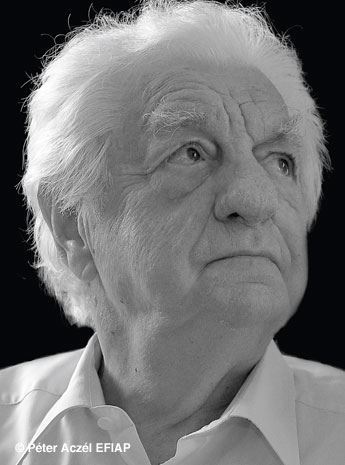
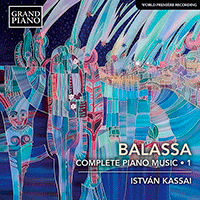
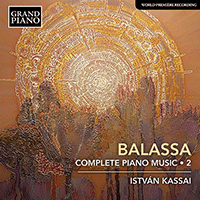
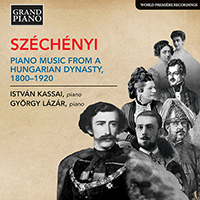
 Grand Piano has gained a reputation for producing high quality recordings of rare keyboard gems. Dedicated to the exploration of undiscovered piano repertoire, the label specialises in complete cycles of piano works by many lesser-known composers, whose output might otherwise have remained unknown and unrecorded.
Grand Piano has gained a reputation for producing high quality recordings of rare keyboard gems. Dedicated to the exploration of undiscovered piano repertoire, the label specialises in complete cycles of piano works by many lesser-known composers, whose output might otherwise have remained unknown and unrecorded.






